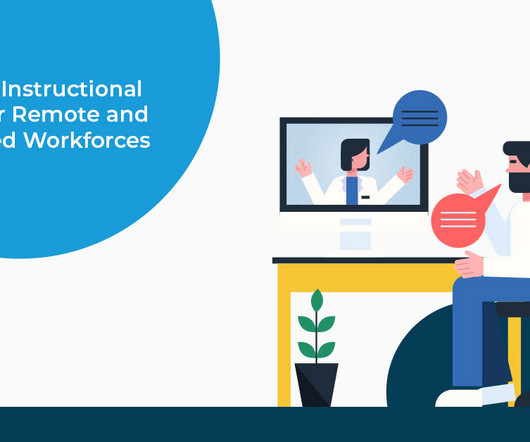The importance of Gagné’s Conditions of Learning Theory in corporate training
EduPivot Knowledge Center
FEBRUARY 1, 2024
As a result, any company that wants to remain competitive must prioritize employee learning, development, and growth. Continuous training empowers people and businesses, unlocking their potential. These events are a sequential guide for designing impactful learning experiences. What Does Conditions of Learning Theory Outline?












































Let's personalize your content